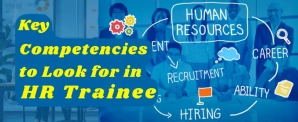
The Great Return to the Office 2023. Remember the Importance of Human Relations
It’s liberating, being able to finally go to our favorite restaurants without wearing masks, ticking travel destinations off our list, and spending quality time with family and friends. The festive season has that zing of celebration again, where we can roam freely and explore local and foreign fantastical locations. It feels as though we have returned to some semblance of pre-pandemic normalcy, at least in destinations where lockdowns have been lifted.
However, there is one element that is seemingly breaking traditional standards and setting new ones. That is the office return of all workers to their traditional workspaces or the rise of hybrid work arrangements. Since the pandemic, many professionals have been opting for remote work, choosing to work from home, coffee shops, and even the beach instead of commuting to and working from their offices. As we move towards a post-pandemic world, it's important to consider the role of the traditional office and the potential for hybrid work arrangements in the modern professional landscape.
So, which work setting does today’s workforce prefer? People’s preferences widely vary, as a Stanford study consisting of 35,000 participants shows that 31% prefer WFH all days of the week, and 20% want to return to the office every day of the week. The remainder of the 50% state a preference for a hybrid model where their workdays are split between the office return and their home.
People still value their interactions, collaborations, and relationships at the office, but research shows that they prefer to choose when, and how many times per week they are at the office. At the same time, however, some businesses are looking to encourage their teams to return to the office entirely, abandoning the WFH and hybrid work models.
Challenges for the workplace
Now, nearly three years after the pandemic, businesses are prioritizing employee wellbeing. Professionals have seen a positive development in their mental health with hybrid work models. Not wanting to backpedal on the decisions around the hybrid work model, business leaders are leaving the decision of WFH or return to the office, to their employees.
Jena McGregor, who is in charge of Forbes leadership, career, and workplace coverage, cites a concern that “In a tight labor market, few employers have wanted to make those choices—or build resentment for rules that are inconsistently applied. “The old saying is ‘don’t set bad rules because they are impossible to enforce.’”
However, these decisions have given rise to new concerns regarding offices, and how employees interact with each other and their workplace. A Deloitte survey including 275 Deloitte clients indicates that as of 2021, 32% are mostly concerned about maintaining company culture, and 26% are seeking to maintain high-performance work.
Adjusting to the hybrid model
With these concerns in mind, companies are looking to improve the quality of life at the workplace, so that employees have greater incentive to leave their homes and contribute to company culture and work ethic.
A notable method is free lunches at the workplace. Fooda, a workplace food program, found that 67% of employees are happier when they have food at work. As Dilip Rao, the CEO of Sharebite believes, “a lot of these firms are reopening their offices, and they’re using food as the carrot to bring people back”.
Companies such as Qualcomm and Google host group fitness classes and private concerts to attract people back to the office return. The most notable incentive, however, is one noted by the Microsoft Work Trend Index. It shows that “85% of employees said rebuilding team bonds would motivate them to return to the office. Other 2022 surveys also found face-to-face collaboration and socialization as the top draw of office time”.
Reconnecting with colleagues
Face-to-face interactions with your colleagues are inevitable. Meeting with them at lunch break or company function, it is important to remember and understand the value of building relationships with your colleagues in a physically reconnecting world.
Amy Blaschka a Forbes contributor, believes that “at its core, business is about relationships. No matter your job function or title, to succeed, you must interact with others.” Fostering relationships can prove to be a challenge, considering many of us now reflect isolationist habits. There are some important factors to be reminded of that can help you in nurturing relationships with your colleagues.
• Begin raising your awareness of your colleagues. Which of them goes to the office? Have any of them met in-person to discuss ideas or projects? You can initiate these activities by suggesting them to your colleagues. Engage in initiatives that garner in-person interactions.
• Next, ensure that when you meet with them, you are actively listening to them. Listen to their struggles, their wins, and ideas. Ensuring your colleagues feel heard and appreciated is vital to nurturing long-lasting relationships.
• Finally, keep notes on the ideas and conversations that are exchanged. You can do that through notes on your phone. Keeping notes helps drive future interactions, keeping them fresh and relevant
Return to the office increases face-to-face interactions at work is paramount for productivity and creativity. Tracy Bower, PhD in the future of work and work-life fulfillment notes that when interacting in-person, colleagues “can collaborate better because they can read each other’s body language more effectively, ensure everyone is included in the brainstorm, gather around the whiteboard, use a break to informally synthesize the ideas of the meeting.”
These interactions may not occur every day, as per new hybrid work models, however, they are precious and can seriously boost creativity, productivity, and the quality of interactions at work. After spending extended hours in front of screens, it’s important to remind each other that we are human. After all, humans' thirst for physical, in-person interaction is natural and unquenchable.
Latest JobsView All
-
 Production Incharge ... Greater Noida 04 Oct 2025
Production Incharge ... Greater Noida 04 Oct 2025Ascent Human Solutions Pvt. Ltd..
-
 Regional Manager – Acquisition – No... New Delhi 24 Oct 2025
Regional Manager – Acquisition – No... New Delhi 24 Oct 2025Ascent Human Solutions Pvt. Ltd..
-
 Key Account Manager – Higher Educatio... New Delhi 24 Oct 2025
Key Account Manager – Higher Educatio... New Delhi 24 Oct 2025Ascent Human Solutions Pvt. Ltd..
-
 Technical Services and Formulation Mana... Pune 29 Sep 2025
Technical Services and Formulation Mana... Pune 29 Sep 2025Ascent Human Solutions Pvt. Ltd..
-
 Head – Schools English (South Asia)... New Delhi 24 Oct 2025
Head – Schools English (South Asia)... New Delhi 24 Oct 2025Ascent Human Solutions Pvt. Ltd..
RELATED ARTICLES
-
Human Resource Key Competencies to Look for in HR Trainees Explore
-
-
Performance management Employee Happiness and Workplace Happiness 2025 Explore
-
Performance management Boosting Employee Engagement and Knowledge Retention through... Explore
-
Human Resource Why Employee Voice Matters? Explore
-
-
-
Human Resource HR Planning - How to Manage Your Leave Policy Structure Explore
-
Human Resource Mastering Leadership: The Three C's of Success Explore
-
-
-
















